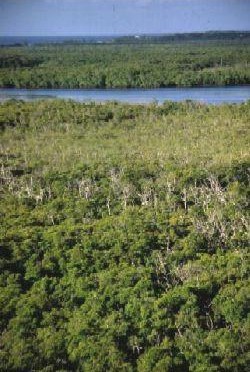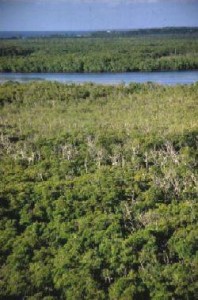
Kenya Airways held its 2005 annual general meeting at the Bomas of Kenya auditorium on Friday August 12th
Erase 2004 memories
The airline was determined to avoid a repeat of the chaos that marred its 2004 meeting at the Carnivore. Some of the improvements made include:
- They provided free transportation by City Hoppa shuttles to and from the railway station to Bomas
- They handed out lunch boxes at the entrance to shareholders after registration (around 10 in the morning) along with a gift bag (with t-shirt and water bottle) – (some shareholders immediately turned around and left having got their objective for the day)
- They also set up an additional Hall at Bomas with A/V conferencing so that excess numbers could be accommodated and participate in the AGM.
Who’s Chairman?
Lawyer Dinesh Kapila was the company & board chairman today. Mr. Omolo Okero was also seated on the dais as a board director for the last time, after resigning as Chairman two weeks ago, at the end of July. Kapila will chair the company until the newly constituted board of directors elects a new chairman next week.
Mr Okero never said a word the whole meeting, sitting quietly as shareholder after shareholder repeatedly called for him to be commended for steering the company to great heights during his 14 years on the board, 10 as chairman. Strangely, the company has not seen fit to honour him with a fitting farewell, as Barclays did for their retiring Chairman, Sam Ambundo at their AGM. Maybe the company has something planned or perhaps has some reason for not wanting to honour Mr. Okero better.
Mr. Kapila is a no nonsense lawyer, with a relaxed style who ran his first KQ AGM like the pro that he is – having no doubt chaired other meetings and made presentations before courts and companies. He introduced the board, management, company secretary and auditor’s report in about ten minutes before opening the floor for shareholder questions.
Shareholder queries
The first questions were by shareholder Mr. A. W. Chami who I have seen at every AGM I have attended over the last year. He asked why borrowing was up, and all the loans were from Barclays UK Company Response: debt is from fleet expansion and Barclays made the best offer
Dividends: More than 1/3 of the questions asked, were requests for increased dividends. In 2004 the company paid a dividend of 0.75 shillings per share (from earnings of 3.14) and this year they proposed to pay 1.25 out of earnings of 6.54 per share. Many felt this was too little and that the company should either pay interim dividends, convert revenue reserves, stop giving sumuni dividends (50 cent dividends), give bonus shares, pay a special dividend to honour chairman Okero, hand out actual cash or even forego giving lunch – all in a bid to pay more dividends. Company Response: Most earnings are retained as the airline must have huge amounts of cash available at all times since the industry is very unpredictable and also for fleet expansion
Fuel: Oil prices are cause for concern. They constitute 26% of airline costs, and oil prices are 61% up from a year ago. CR: the airline hedges its fuel costs for 3 months, and is considering adding a fuel surcharge to passenger tickets
Women: There are no lady board members – can the company rectify that? CR: KQ has had women directors before such as Dr. Eddah Gahukia, and more women should apply for director elections
Drugs: KQ’s “Pride of Africa” image is being tarnished by repeated arrests of KQ employees for drug trafficking, perhaps they should pay their staff better? CR: drugs are a national problem bigger than KQ and caused by greed. The airline plans to employ some sniffer (dogs?) from later this year
Directors: Shareholder concerns included;
- Directors elections are a sham, as the two majority shareholders (KLM: 26% and the Kenya Government: 23%) call the shots.
- The proposed maximum terms of 8 years for directors to serve.
- There are no true minority shareholders on the Board. All directors of the company hold 3 to 4 other jobs elsewhere.
- Directors should eat lunch with shareholders and hear more of their concerns
Government: Finance Permanent Secretary Joseph Kinyua was present as a board member and he confirmed that the government will not be selling off is 23% shareholding saying that the KQ is a national airline it is in the strategic interest of the Government to retain its minority shareholding in the company.
Fleet: Why buy new 777 planes instead of leasing? CR: At the time the decision was made, buying new aircraft was the only available option as leasing companies were not comfortable with the airline’s position. But now the airline is better established they will in fact be leasing 737-800 aircraft next year to replace some 737-200 planes
Privileged shareholders: Can shareholders get preference by giving them discounted air tickets or employing their relatives? CR: KQ carries 180,000 passengers a month and if they give each of the company’s 80,000 shareholders discounted flights they will have no profits to report. Also the airline has no favours/does not discriminate in employment matters
Funny: Questions that got the most laughs;
- The font in the annual report is too small
- Dividend so pitiful that street kids will not accept it if it is thrown at them.
- Now that shareholders all have their lunch (boxes), the meeting could go on till 5 p.m.
- Directors should be elected on the floor by acclamation, not by secret ballot
- One shareholder wondered if he could get the gift bag he missed at last year’s meeting
Media
Immediately after the AGM ended, reporters rushed off for a separate media only briefing (no bloggers) to get some straight talk from management, away from the shareholders nonsense. Later on TV, MD Naikuni was shown denying that he had a conflict with former chairman Okero. I feel the media should pay more attention to shareholder questions as they sometimes bring out some candid answers from the Board.
Elections
There were three director vacancies, which were created by Dr Chris Obura, Neil Canty (the airline Finance Director, and Mr Omolo Okero retiring. Canty and Obura offered themselves for re-election while Okero retired for good.
Others candidates were
- Joram Kariuki – former NBK manager and politician
- Japeth Rob, a HR manager, vocal shareholder and a perennial candidate
- Evans Mwaniki, the Chairman of BAT Kenya and former shell executive
- Ayisi Makatiani, founder of Africa Online
- Also one lady got was on the panel, but she was absent today.
- Surprisingly, Paul Wanderi Ndungu, a lawyer with a substantial number of KQ shares (he’s the #4 shareholder with 2.14%) withdrew his candidacy at the meeting.
I predict that Dr. Obura and Neil Canty will be re-elected. The third slot will be a fight between Evans Mwaniki and Ayisi Makatiani. Audited election results will be published in the Tuesday paper.
All work and no play…

On the way out, I had my first view of the new and much raved about Land Rover Discovery LR3. It was being driven by KQ MD Naikuni.




